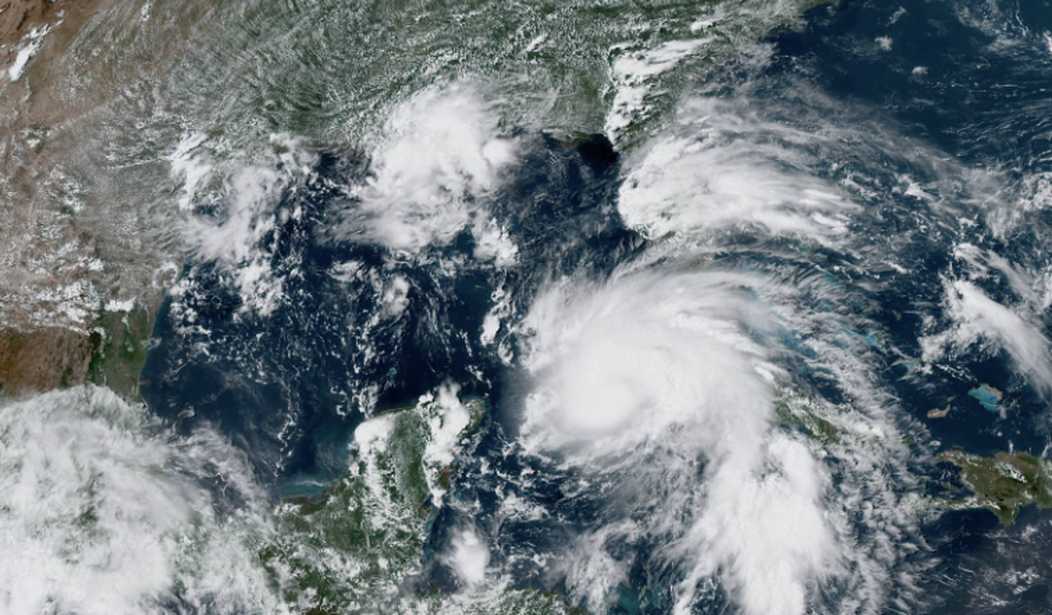I don’t know, and neither do the experts who are charged with predicting them.
Hard as it is to believe, our models about how the climate and weather work are not quite as reliable as we have been told. Again and again and again….
Ars Technica has an interesting story that does a fine job of pointing out the huge disconnect between the experts’ predictions of a vicious hurricane season and the welcome lack of tropical storms this year.
Back in May NOAA predicted an above average year for tropical storms and hurricanes, and they had reasons to. They claimed that “ongoing La Niña, above-average Atlantic temperatures set the stage for busy season ahead.”
Forecasters at NOAA’s Climate Prediction Center, a division of the National Weather Service, are predicting above-average hurricane activity this year — which would make it the seventh consecutive above-average hurricane season. NOAA’s outlook for the 2022 Atlantic hurricane season, which extends from June 1 to November 30, predicts a 65% chance of an above-normal season, a 25% chance of a near-normal season and a 10% chance of a below-normal season.
For the 2022 hurricane season, NOAA is forecasting a likely range of 14 to 21 named storms (winds of 39 mph or higher), of which 6 to 10 could become hurricanes (winds of 74 mph or higher), including 3 to 6 major hurricanes (category 3, 4 or 5; with winds of 111 mph or higher). NOAA provides these ranges with a 70% confidence.
Of course there is plenty of hedging in their forecast, but we are firmly out of the 90% prediction that we would have an above average to near normal hurricane season. In other words, if trends continue our quiet hurricane season was far, far from what they expected.
Ars Technica points out another, perhaps even more interesting fact. The few storms that have developed have been very weak.
The disparity is more significant when we look at a metric for the duration and intensity of storms, known as Accumulated Cyclone Energy. By this more telling measurement, the 2022 season has a value of 29.6, which is less than half of the normal value through Saturday, 60.3.
It turns out that despite our best efforts we still have a long, long way to go to predict either the weather or the near term climate. Predicting longer term climate trends is almost certainly beyond our means at this point. We’re too often spitballing.
While it is still entirely possible that the Atlantic basin—which includes the Atlantic Ocean, Gulf of Mexico, and Caribbean Sea—produces a madcap finish, we’re just not seeing any signs of it right now. There are no active systems at the moment, and the National Hurricane Center is tracking just one tropical wave that will move off the African coast into the Atlantic Ocean in the coming days. It has a relatively low chance of development, and none of the global models anticipate much from the system. Our best global models show about a 20 to 30 percent chance of a tropical depression developing anywhere in the Atlantic during the next 10 days
This is the exact opposite of what we normally see this time of year, when the tropics are typically lit up like a Christmas tree. The reason for this is because September offers a window where the Atlantic is still warm from the summertime months, and we typically see some of the lowest wind-shear values in storm-forming regions.
The article, which unsurprisingly doesn’t mention global warming or climate change (how refreshing!), plays it straight down the middle. It notes a divergence between what was predicted and what reality dished out to us, and it provides speculation about why things turned out differently without providing excuses.
While it looks like seasonal forecasts for 2022 will probably go bust, it’s important to understand the difference between that activity and the forecasting of actual storms. Seasonal forecasting is still a developing science. While it is typically more right than wrong, predicting specific weather patterns such as hurricanes months in advance is far from an established science.
Would that it were usually so! Were we to have had a bad hurricane season we wouldn’t be hearing about how climate predictions (of which this is an example of nearer term predictions) are a developing science. We would instead have been treated to lectures about the sins of man and how carbon is poisoning the planet.
When NOAA predicted an above normal season ABC News’ chyron blared “Climate Crisis: Saving Tomorrow.” They blamed climate change directly for the increasing frequency and energy of tropical storms. Of course both the frequency and intensity of storms is lower, not higher than average. The opposite of what was predicted.
I would feel a lot more confident if reporting on climate science didn’t veer off into lecturing about the coming apocalypse and hewed more closely to the line taken by Ars Technica in this case.
Science reporters should more often describe the science of forecasting as a “developing science” instead of the second coming of Nostradamus. Maybe if they did the arguments over climate policy would be a bit more nuanced and a lot more rational.









Join the conversation as a VIP Member